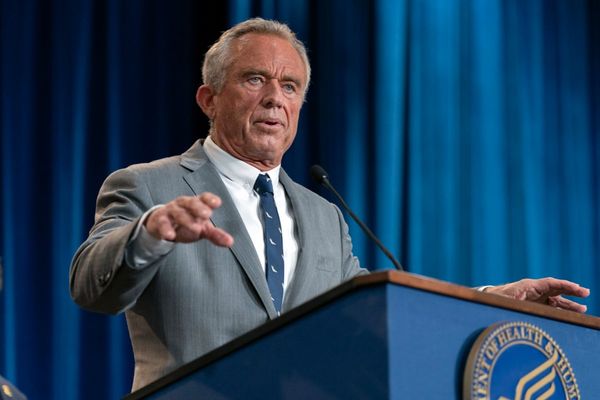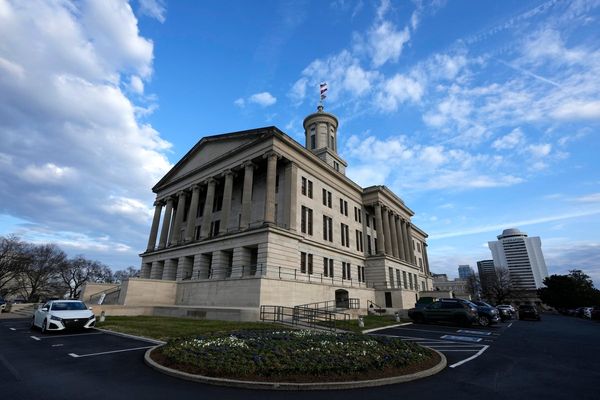The fight over the future of Houston’s public school system escalated this week when the local teachers union joined a federal voting rights lawsuit against the state. The legal challenge is part of a last-ditch effort to stop the state government from taking indefinite control of Texas’ biggest and most diverse public school district.
“This seems more like a power grab and almost akin to a political coup than a political governance system,” Zeph Capo, president of the Houston Federation of Teachers, which represents more than 6,500 HISD employees, told the Observer.
On Tuesday, his union filed a motion contending that the state’s takeover of the Houston Independent School District is unconstitutional. A takeover means that the state will replace HISD’s elected school board members and the superintendent with its own appointees, giving the Republican-appointed state bureaucrats tremendous power to implement changes without any clear sort of accountability. Plaintiffs say that if the state replaces the elected members of the board, Houston residents will be deprived of their right to elect local representation, an act that they say disenfranchises and discriminates based on race and national origin.

“This takeover is a very targeted and intentional process and amounts to illegal disenfranchisement,” Maxie Hollingsworth, a math teacher at an HISD elementary school and a parent of students in the district, said at a press conference about the union’s lawsuit. “It would take away my vote and everyone else’s who voted in the school board election. I can’t look at myself in the mirror and say this is OK.”
Texas Education Agency Commissioner Mike Morath alerted the Houston Independent School District in early November that he was taking control of HISD. He cited a TEA investigation into the scandal-plagued school board and its “failure of governance,” as well as the district’s inability to improve chronically low academic performance at Wheatley High School, a predominantly black and Hispanic school in the city’s historic Fifth Ward.
“Given the inability of the board of trustees to govern the district, these sanctions are necessary to protect the best interests of the district’s current and future students,” Morath wrote.
The scale of the state government’s intervention in a local school district is unprecedented. The TEA has taken over a handful of smaller struggling districts in recent years, but HISD comprises more than 275 schools and is home to more than 200,000 students—many of them black, brown, and low-income. It’s by far the largest school district in the state, and one of the biggest in the country.
Governor Greg Abbott, who appointed Morath to head the TEA, has been a leading critic of HISD, saying it needed to be taken over. In a January tweet, he called its leadership a “disaster” and condemned the school board for its “self-centered ineptitude.”
Morath made the decision official just one day after Houstonians voted to oust two of the school board’s embattled incumbents, Board President Diana Dávila and Trustee Sergio Lira. Two other sitting incumbents opted not to run for reelection, meaning that the nine-member board would feature four new trustees next year. They likely won’t have much time to actually serve. Morath has already started the application process for state-appointed managers and intends to install his new board within the next few months. There’s no precedent for a takeover of this size and no definite timeline, though the TEA will remain in control for at least two years.
The union’s addition to the lawsuit broadens the legal flank against the takeover. The HISD board of trustees launched its lawsuit in August arguing that the state’s investigation into the school board’s alleged misconduct—including violations of state open meeting and contract procurement laws—was “one-sided” and “unsupported by any credible evidence.”
The lawsuit is likely the last potential roadblock to prevent a state takeover. A hearing date has been set in federal court in Austin for early December to consider HISD’s request for a temporary injunction.
All the uncertainty has Houston parents, students, teachers, and public education advocates growing increasingly concerned about what a takeover will mean for them. TEA senior advisor AJ Crabill, who Morath tapped to answer questions at community meetings in Houston, has assured residents that the community will be integrated in the takeover process. But those assurances have done little to allay some people’s fears that a takeover will create a downward spiral.
The saga dates back to the 2015 state legislative session, when lawmakers passed a bipartisan bill that created a new accountability system for local school districts’ academic standards. Under the new system, if a district has a school that fails to meet standards for five consecutive years, the TEA could either shut down that school or take over the district.
Representative Harold Dutton, whose district includes Wheatley and Kashmere High School, another chronically “failing” campus, pushed for the takeover, thinking it was the only way to get the entire school board to care about equity for all HISD schools, not just the ones in their districts. As he said at the time, “I am convinced that, without a gun to their head, it won’t happen.”

In 2017, the Legislature created an escape hatch for districts at risk of takeover, giving them the option to hand control of their struggling schools over to charter school operators or nonprofits rather than face sanctions.
Dutton insists that he never thought the law would lead to a HISD takeover. Still, he has little sympathy for those who bemoan the takeover provision as overly harsh. “It’s kind of like saying, if you don’t want to go to prison for murder, then don’t kill anybody,” Dutton told me back in January. “Well, if you don’t want to suffer the penalties under House Bill 1842, don’t have low-performing schools for five consecutive years.”
HISD has no shortage of academic challenges, and you’d be hard-pressed to find someone who doesn’t agree that the school board has been woefully incompetent. Trustees have allegedly violated open meetings law, among other misconduct, and have been mired by personal animosities and racial tension. But despite all that, the district has made notable improvements in recent years. As the Houston Chronicle reported, HISD has reduced the number of its “failing” schools from 58 to 21 over the past four years. The district actually performs well compared to its most comparable large urban districts. The state gave HISD a “B” grade for district-wide academic performance this year, the same as Dallas ISD, which Abbott and Morath have touted as a model.
After a waiver from sanctions following Hurricane Harvey, HISD entered the 2018-2019 school year with an ultimatum from the state: Improve performance at four schools, including Wheatley and Kashmere, or state law would trigger closures or a TEA takeover.
When the TEA released its scoring in August, Kashmere had met state standards for the first time in 11 years, improving its previous score of 49 to 75 out of 100. Two other at-risk campuses also managed to pass.
Wheatley, too, would have passed if it weren’t for a new TEA rule that automatically brings a school’s score down to 59 if it fails to pass three of the four metrics used by the state agency, including student achievement, school progress, and closing gaps in outcomes.
Per state law, the school’s narrow failure meant that the TEA could decide to either close the 876-student campus or come in and take over control of the entire district and its 280 schools and more than 200,000 students.
Morath opted for the latter.
Most takeovers are due to intractable academic failures, corruption, or financial mismanagement—not the performance of a single school. As Chronicle reporter Jacob Carpenter put it, Morath’s “new governing team will encounter a rarity in the annals of state interventions: a relatively stable, well-performing school district.”
“This is a unique and really puzzling type of development compared to what takeover has usually been used for,” Domingo Morel, a political science professor at Rutgers University who wrote a book on the history of state takeovers of school districts, told the Chronicle. “This doesn’t fit into the other types of examples we’ve seen across the country.”
Critics of the TEA takeover see it as an undemocratic imposition of Republican state leaders’ will on a district that is composed predominantly of people of color.
Some believe that the state was intent on taking over HISD, with or without cause. They are wary of Morath’s new board of managers, worried they will turn Houston’s public schools into a petri dish for the sort of market-based education reform experiments that Republicans (and plenty of Democrats) have pushed for in big urban school districts across the country.
“It was very clear that that is what [Morath] wanted and he was trying to justify [the takeover],” said Garnet Coleman, a Democratic state representative from Houston. “The most important part was to just check the boxes.”
These Houston legislators and other takeover critics believe that the state intervention will open the door for privatization and more charter schools.
More specifically, Capo, the Houston teachers union leader, believes that Abbott and Morath see this as an opportunity to advance the corporate education reform movement’s signature “portfolio model” that Morath has made a core part of his TEA agenda, with mixed results. The model aims to parcel off public schools to private charter-school operators with the idea that market-based competition will provide more choices and better student outcomes.
Critics say the model will slowly starve the remaining public schools and has led to educational disasters in places like New Orleans. “It’s the Oprah Winfrey model of running schools,” Capo said. ‘You get some schools and you get some schools, and you get some schools!’ That’s a ridiculous way to run schools.”
Morath—and by extension, Abbott—may soon find that state control of a massive, complex school system is easier said than done. “This is now in their hands,” Houston state Representative Gene Wu said. “If any school slides backwards, it’s on them. If any school is failing, it’s on them.”
Read more from the Observer:
-
‘We Build the Wall’ Lands in South Texas, Vilifies Priest and Butterfly Refuge: Accusing a priest of supporting human trafficking and a nature center of butterfly-smuggling is one way to make friends when you’re the new kid in town.
-
I’ve Lived in East Austin for 60 Years, and I Don’t Recognize it Anymore: As gentrification reshapes my neighborhood, I fear we’re losing something of real value to our city.
-
The Rural Health Care Crisis, Mapped: Texas is facing a rural health care crisis. How many doctors are in your county?







